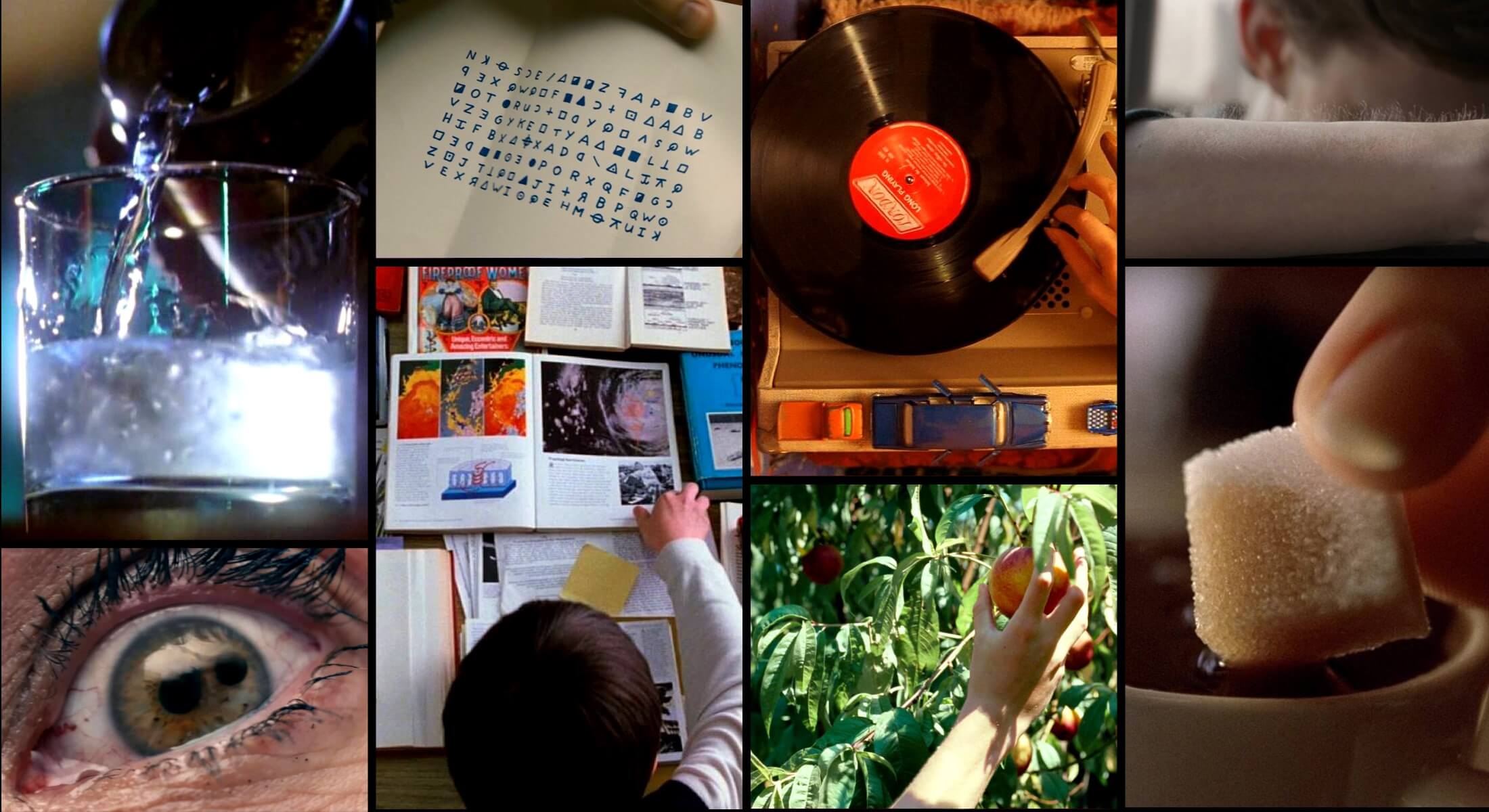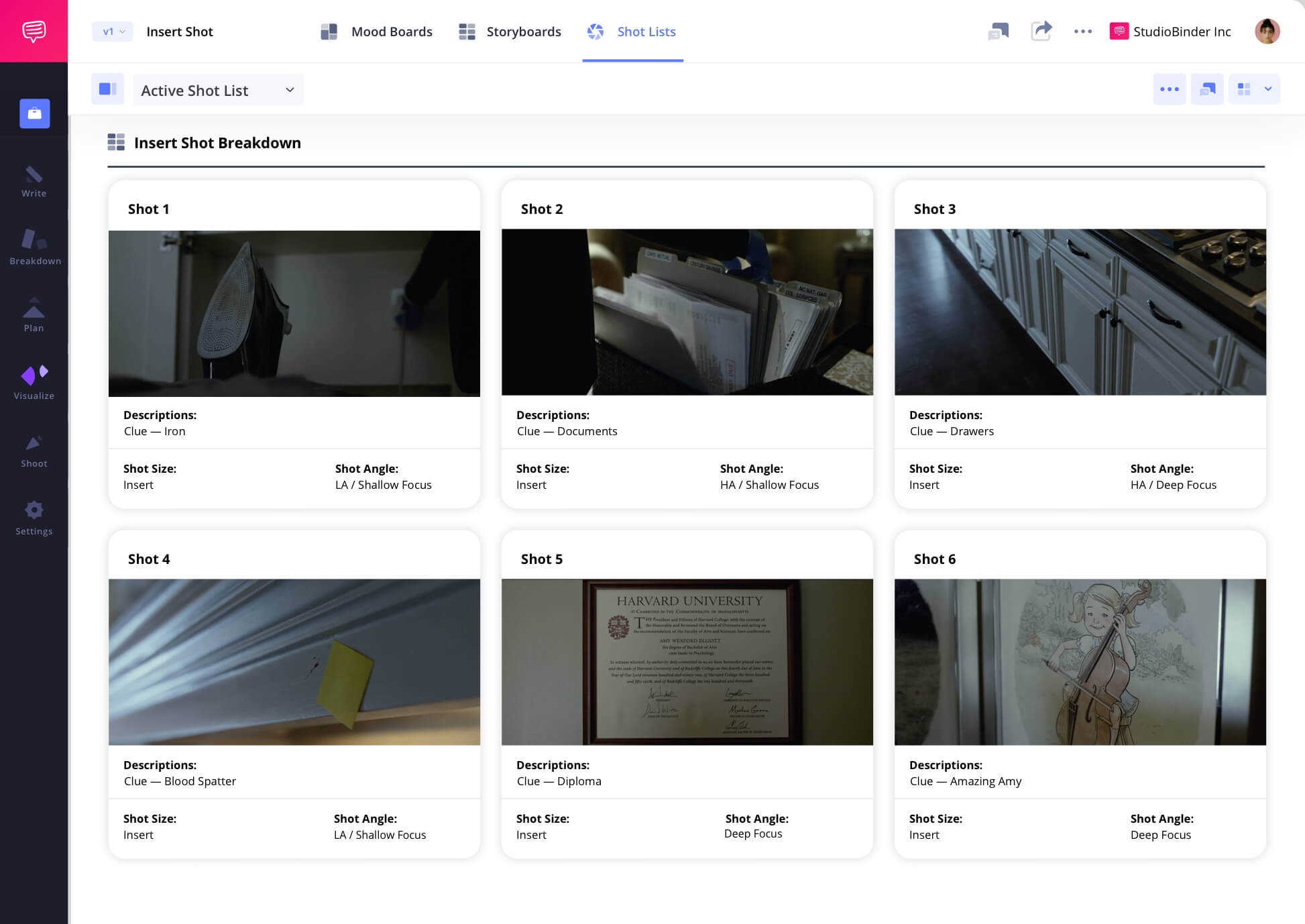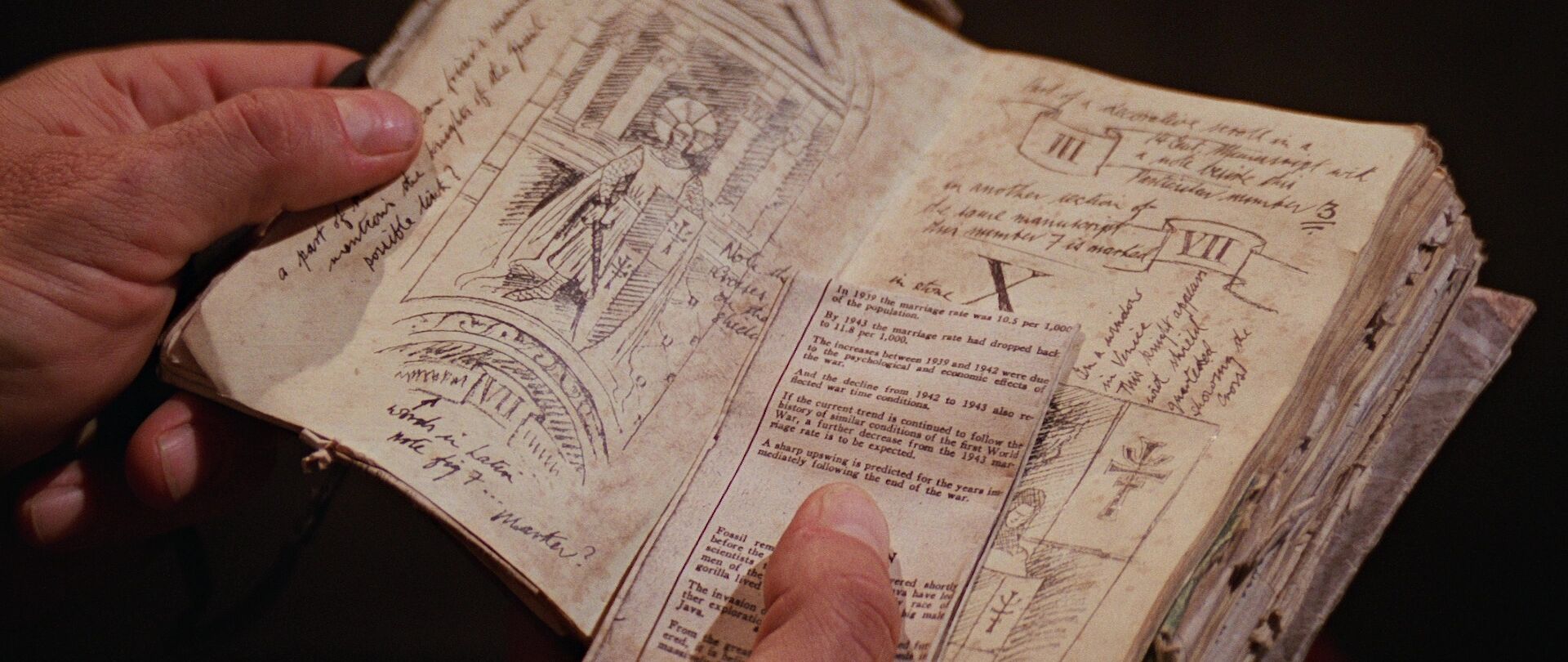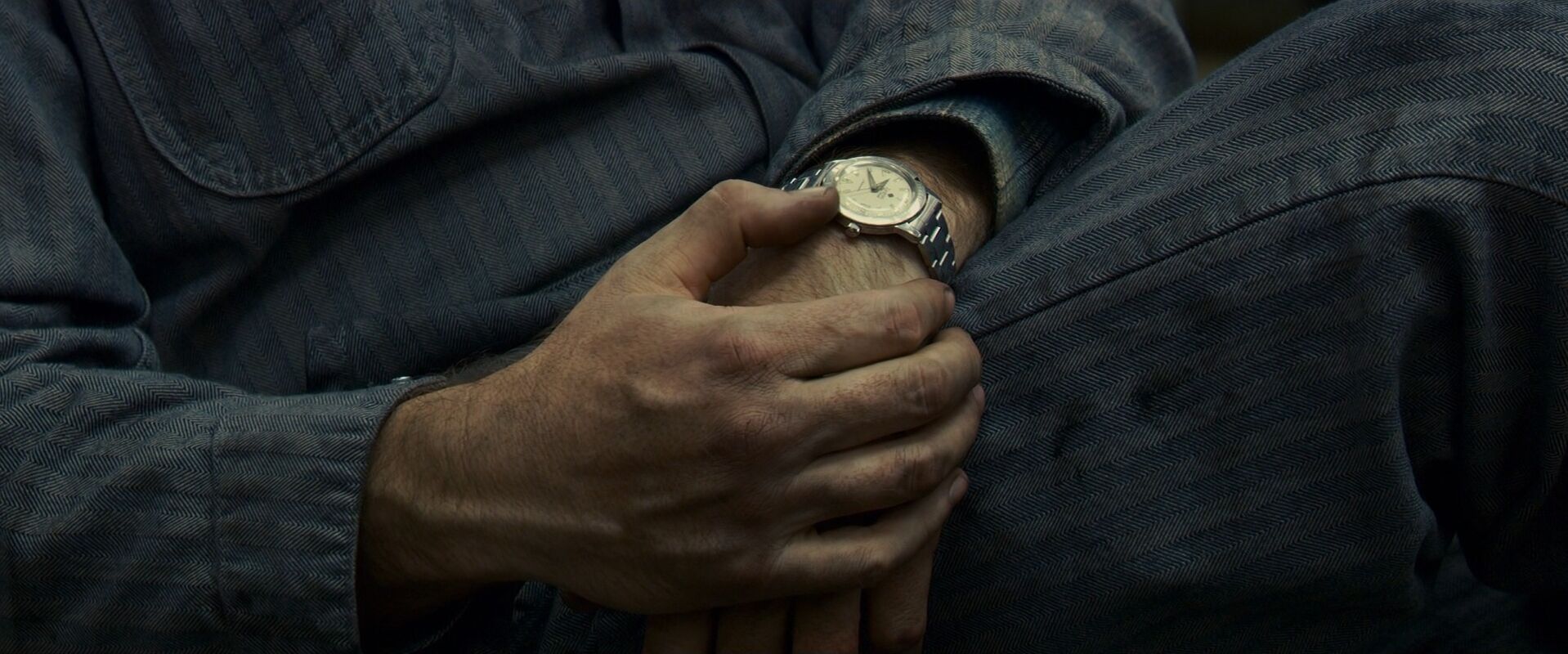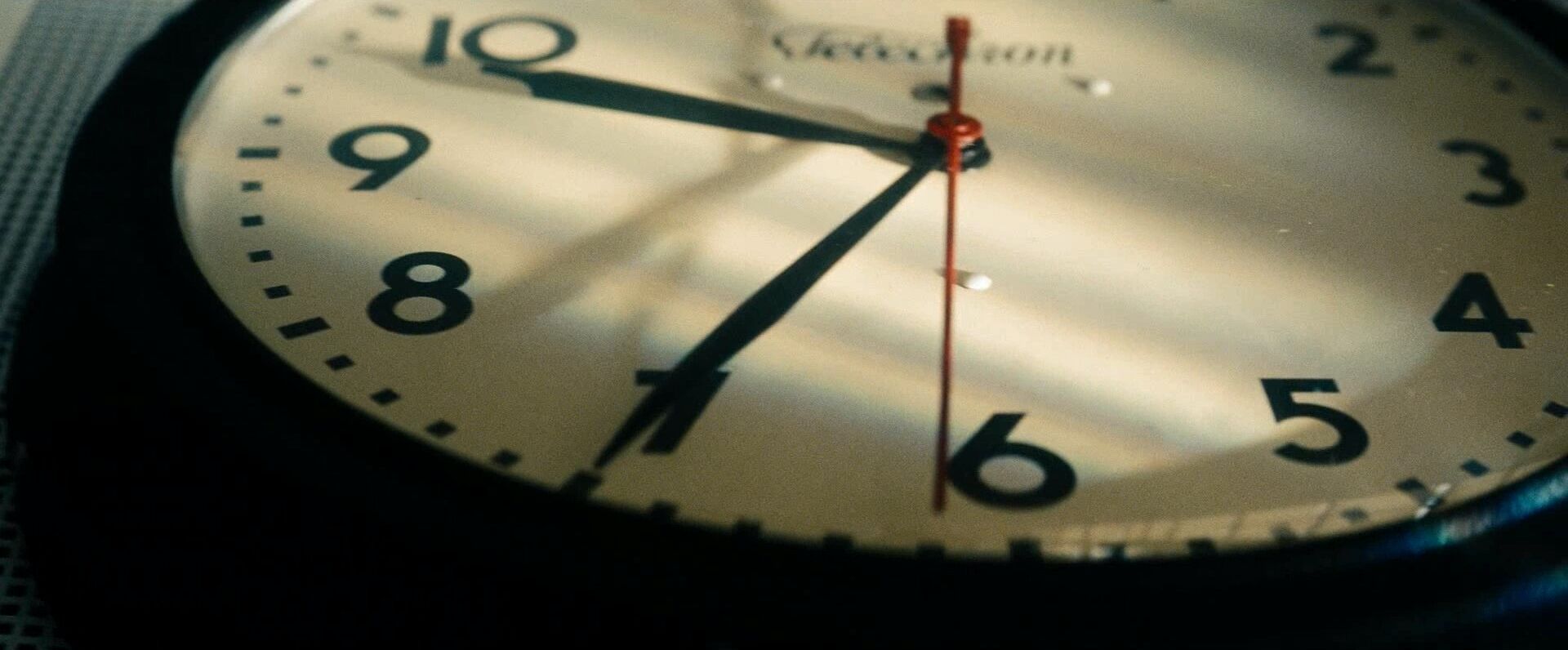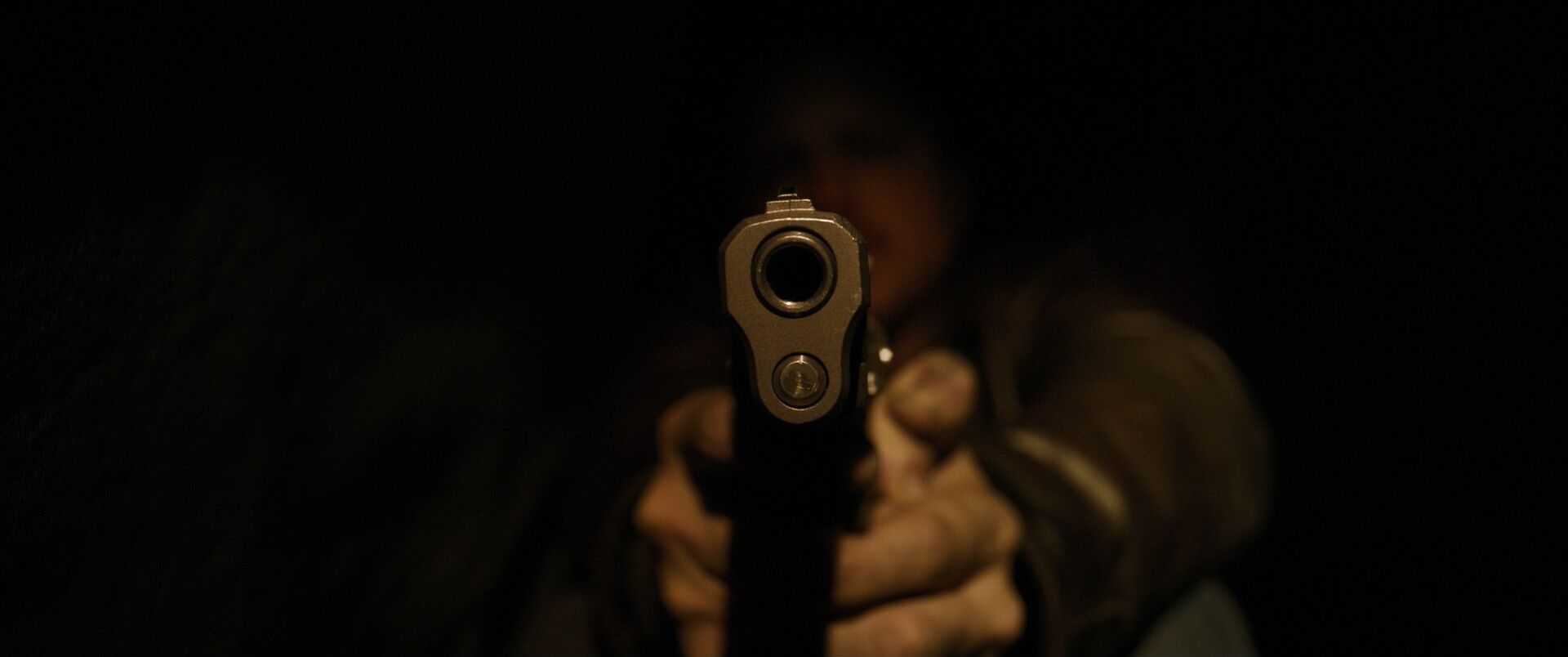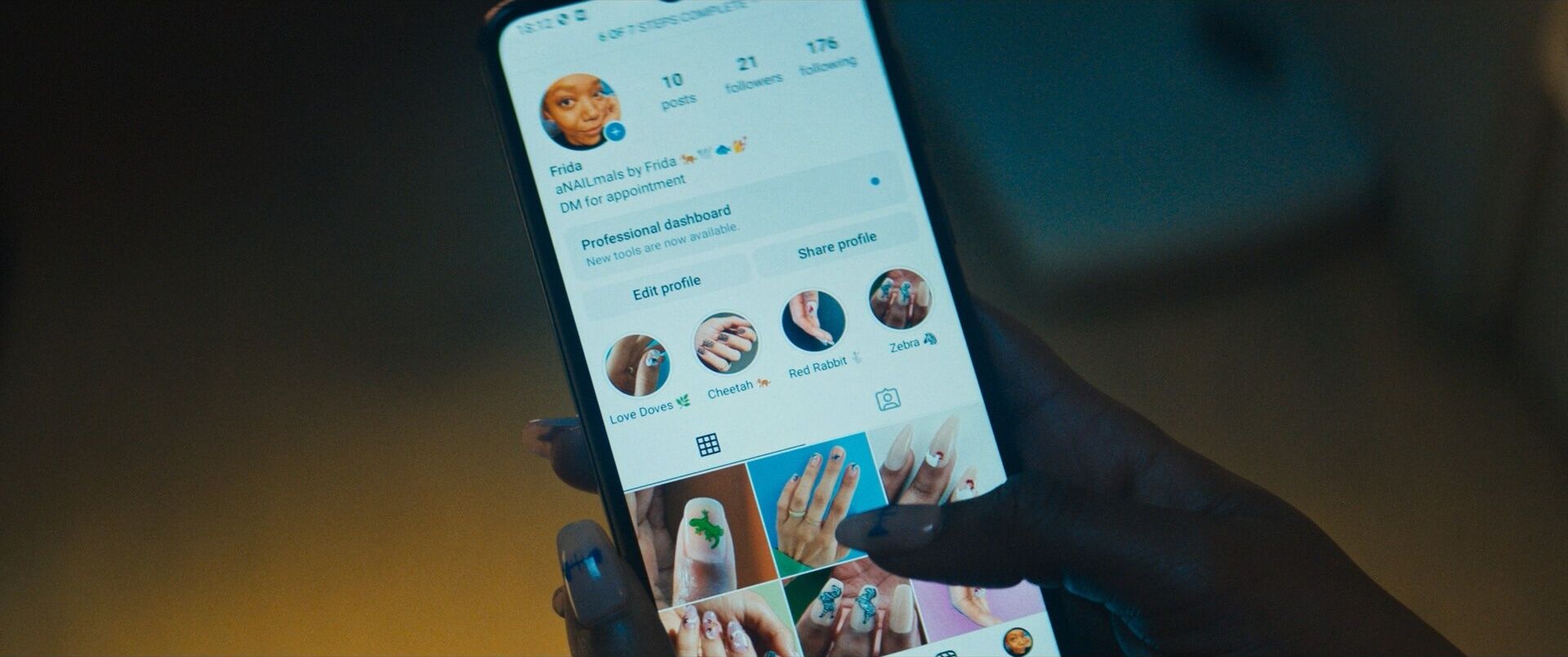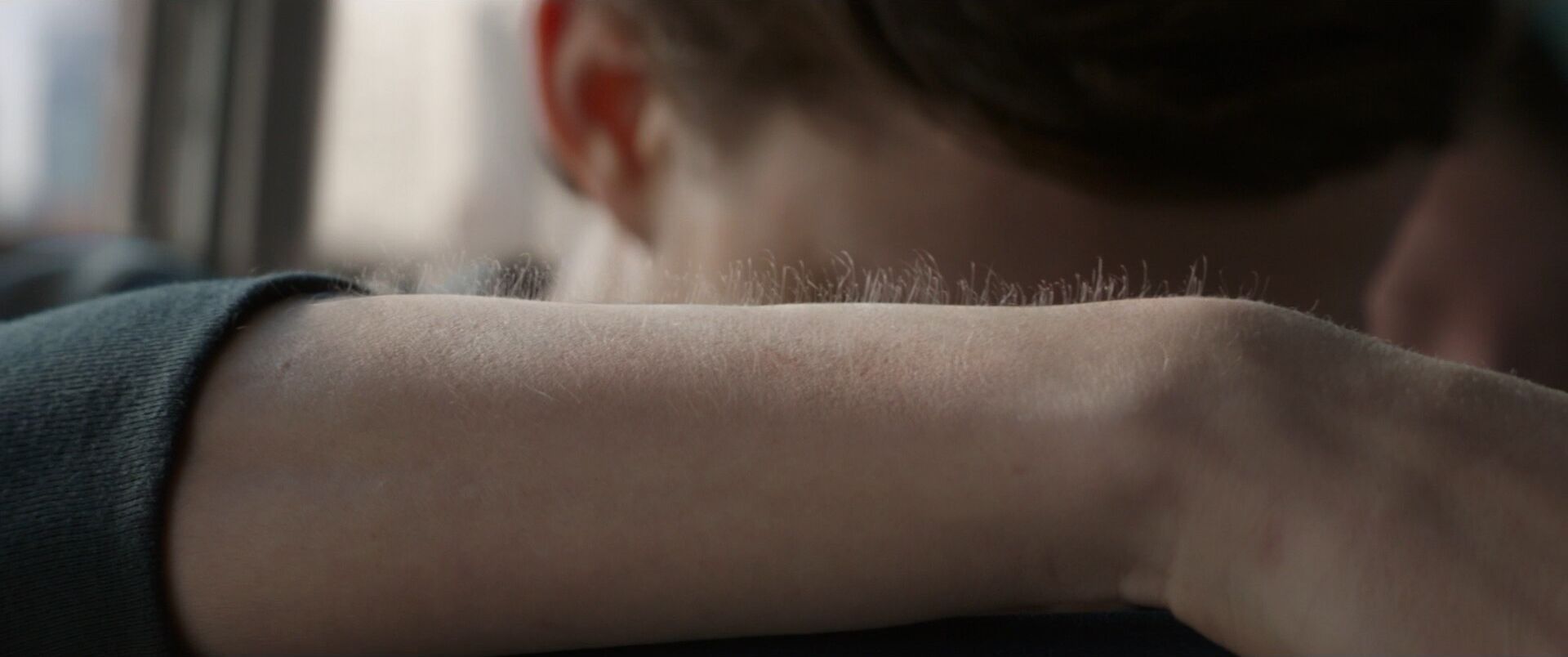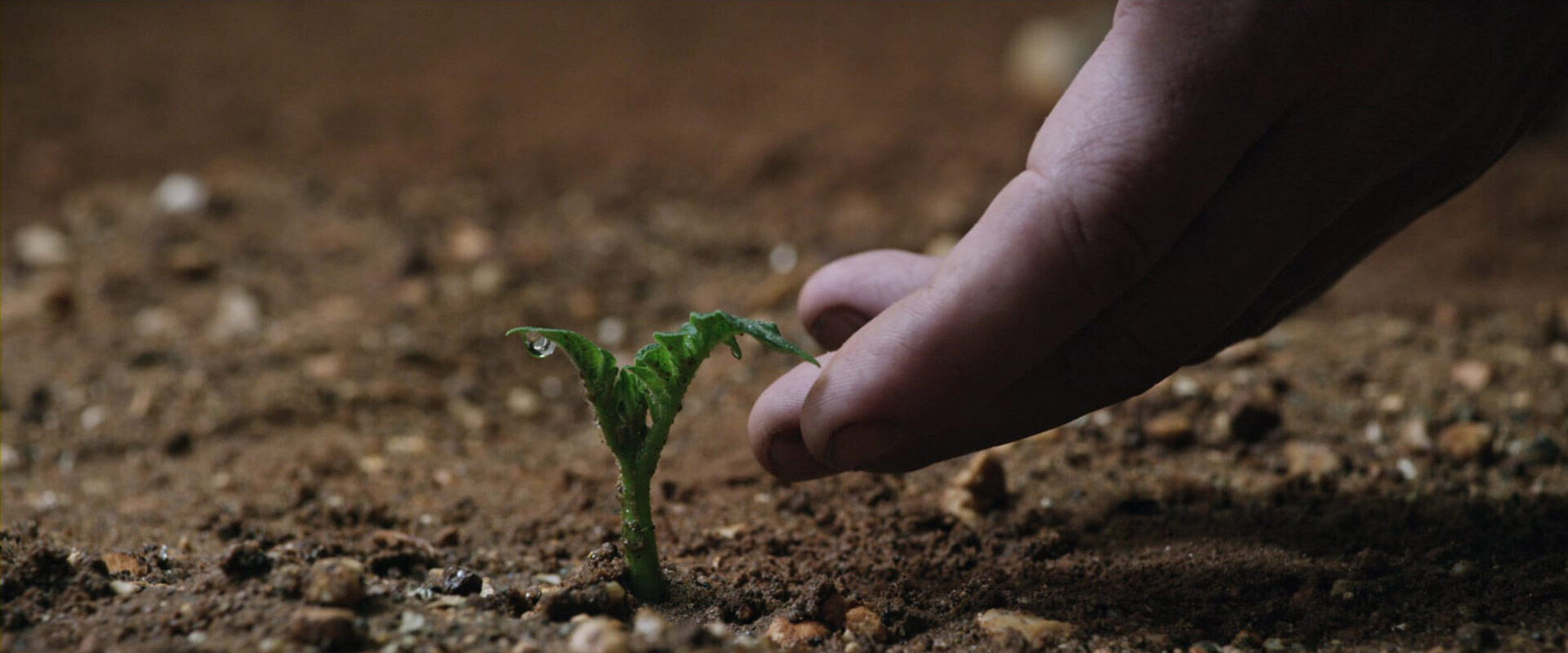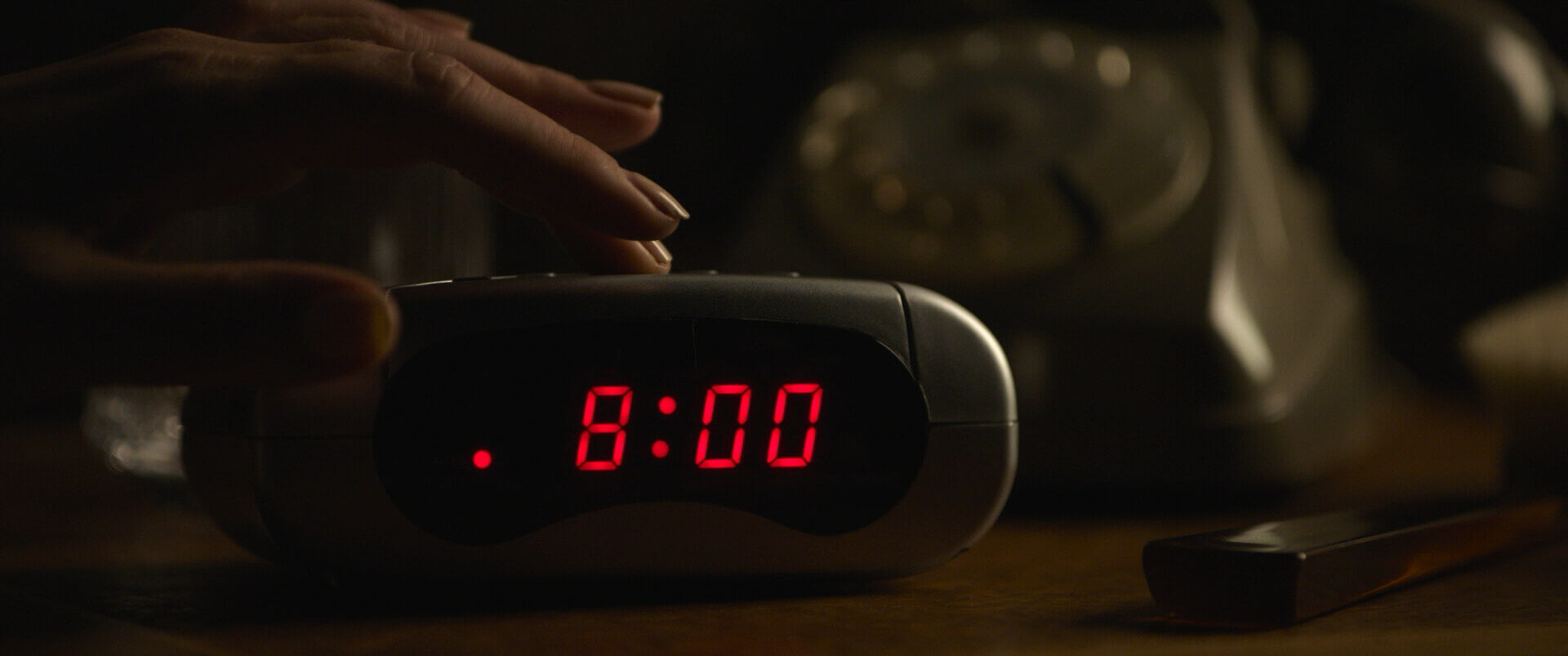Insert shot definition
What is an insert shot?
An insert shot is a close-up that isolates a specific object, detail, or action within a scene. It is typically shot from the point of view of a character, matching their eyeline.
For a deeper dive into this technique, explore our full guide to insert shots, complete with scene examples and practical tips.
Insert shot in film
Insert shot examples
We’ll explore how insert shots function within a scene, but first it helps to see them in context. Take a look at this curated selection of insert shots to understand how they focus attention and enhance storytelling across different films.
Highlights important details
Directs the viewer’s attention
Adds clarity or emphasis
Reveals character intentions
Usages
What does an insert shot in film do?
Insert shots may be small in scale, but they can do a lot. By focusing on a key object or gesture, insert shots direct the viewer’s attention and often deliver critical narrative information. Here are some unique ways they can be employed:
Information Delivery
A close-up of a document, photo, or screen provides essential plot details without exposition. It makes us lean in and see it for themselves.
Emotional Emphasis
A trembling hand or clenched fist can speak volumes about a character’s internal state that we can see manifest physically on their body.
Foreshadowing
Briefly highlighting an object large in the frame with an insert shot can build tension for what's to come (think of Chekov’s Gun).
Rhythm and Pacing
Quick insert shots can accelerate a montage or break up the flow of a dialogue-heavy scene with key details that might otherwise be missed.
Avoiding confusion
Insert shot vs cutaway
Insert shots and cutaways both are used to momentarily shift focus away from the main action, but they serve different purposes and are often framed differently.
An insert shot is a close-up of something already part of the main action, usually an object or detail a character is interacting with. It’s meant to emphasize important information or emotional nuance within the scene.
A cutaway, on the other hand, briefly diverts attention to something outside the primary action. This could be a reaction shot, a passing object, or an environmental detail.
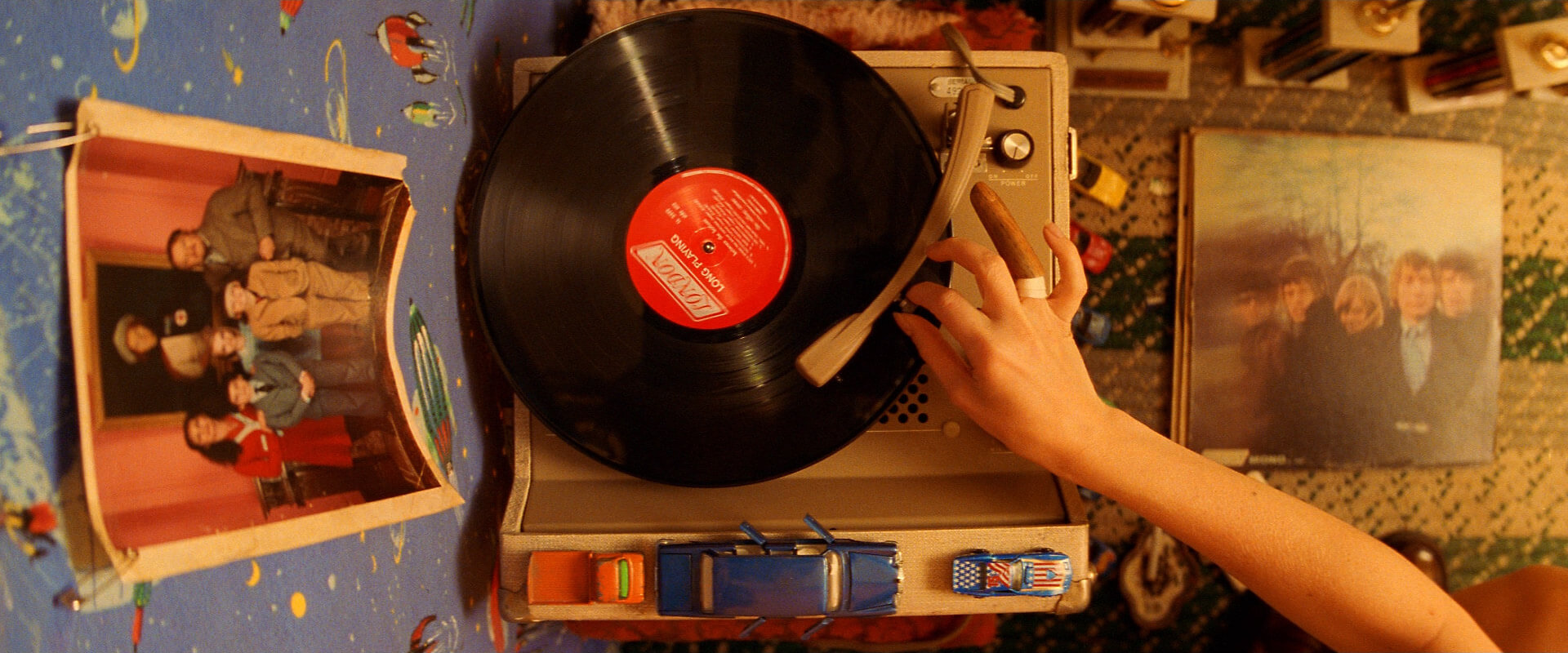
Case Study
Shot listing the insert shot
Let’s take a look at what insert shots look like in context. An insert shot is defined, after all, by the shots that surround it. In this sequence from Gone Girl, we mark each clue with an insert shot so that we too can become detectives.
Be sure to click the shot list below to see the entire scene.
There’s no single formula for using an insert shot. It’s a flexible technique that can serve everything from plot advancement to emotional subtlety.
Let’s look at how these precise, detail-focused shots can enrich a scene and sharpen the viewer’s attention.
Hybrids
How can you pair an insert shot with other cinematic techniques?
How to combine an insert shot
Insert shots may be brief, but pairing them with other techniques can elevate their impact and deepen their role in storytelling. Here’s how insert shots can work in tandem with other cinematic tools in a filmmaker’s visual arsenal:
- Push-In: Slowly pushing in on an insert builds suspense and hones the audience’s focus.
- Pan: A pan into an insert can create a natural visual reveal.
- Lighting: Highlighting an insert with dramatic lighting can transform a simple object into a symbol or motif.
- Tilt: Tilting into or away from an insert can create a sense of discovery or emphasis, especially when revealing a critical object or moment.
- Shallow Depth of Field: Blurring the background keeps attention locked on the object, sharpening its narrative weight.
Frequently asked questions about insert shots in film
An insert shot draws attention to a specific object, action, or detail that's important to the scene. It helps:
- Highlight key props or gestures
- Add emphasis or symbolism
- Foreshadow future events
Use a separate setup to isolate the object or action. Make sure lighting and continuity match the main footage, especially if the insert is tightly framed. You’ll want to place the camera at an angle that matches the character whose POV it’s from.
Cut to the insert at a moment that supports pacing and storytelling, like with any other shot. Often, insert shots are placed mid-action to maintain visual flow. Some tips:
Keep it brief and purposeful
Match movement and lighting for seamless integration
Use sound or visual cues to guide the viewer’s attention
While most inserts are close-ups for clarity and emphasis, medium or even wide inserts can work depending on context, as long as the object remains the clear focal point.
